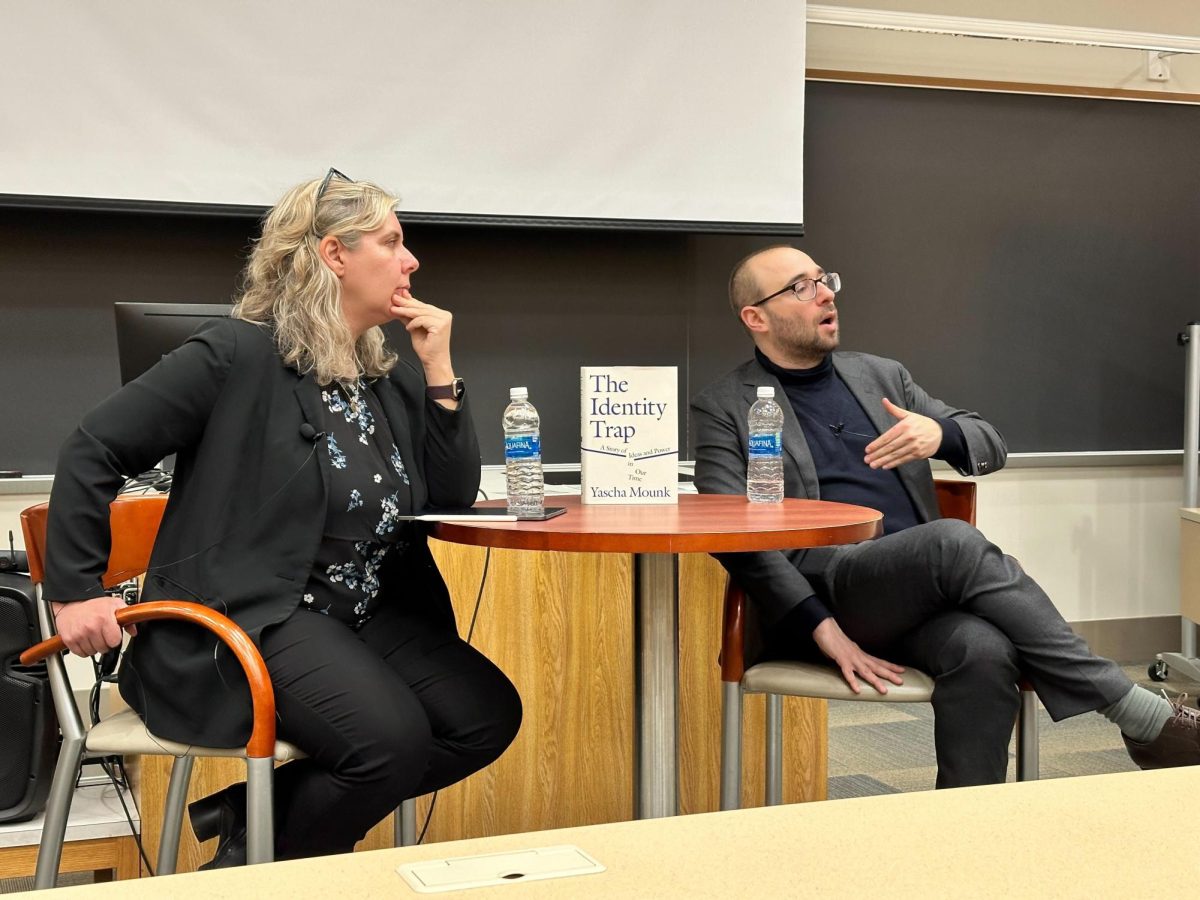Yascha Mounk, author of “The Identity Trap,” said he’s a “democracy crisis hipster,” meaning he “worried about the crisis of democracy before it was cool.”
“I’ve been concerned for about the last 10 years about the rise of severe political movements, not only, but predominantly, on the political right,” Mounk said.
A book talk sponsored by BridgePittsburgh, Frederick Honors College and the Dietrich School of Arts and Sciences took place Wednesday evening in the Barco Law Building, where Mounk and mediator Jennifer Brick Murtazashvili, a professor for Pitt’s Graduate School of Public and International Affairs and the founding director of the Center for Governance and Market, discussed Mounk’s 2023 book, “The Identity Trap.”
“Unlike populism, which has been written about in endless books, [the democracy crisis] is a topic that hasn’t been studied very much,” Mounk said. “In this book, I try to explain where these ideas come from.”
Mounk, a professor of international affairs at Johns Hopkins University, contributing editor at The Atlantic, senior fellow at the Council on Foreign Relations and a Moynihan Public Fellow at City College, said he’s deeply concerned with the “polarization” in American society.
“[My goal] is to suggest a better alternative to remedy some of the real injustices in our society and our world without falling into what I call ‘the identity trap,’” Mounk said.
Murtazashvili asked Mounk to dive deeper into what he calls “the identity synthesis.” She asked Mounk to describe this ideology and the reasoning behind his decision to relate it to the more relevant term “woke” in his book.
“I have no particular problem with the word ‘woke,’” Mounk said. “My concern about it is when it’s now become, often, a negative aspect, a pejorative. You know, ‘Oh, those stupid woke people.’”
The identity synthesis, in short, “puts forms of group identity in the very heart of the way we see the world.” He claims this can be both beneficial and harmful to the way the world functions as a whole.
“Today, we’re lacking this helpful dialectic,” Mounk said, “The clash between people can be productive, but we don’t have that clash actually. Instead, we often have people just bowing in fear to some of these ideas, and then bad ideas can get through.”
Mounk said he’s further concerned that, along with a lack of language to produce beneficial debates, people are falsely believing political ideals, thus leading to a more separated society.
“These ideas claim that they’re going to remedy injustices and make society better,” Mounk said. “A lot of the appeal is, of course, about injustices in society. But rather than visiting a society in which we come to be less defined by our identities, it creates a world where we become more and more deeply defined by the identity into which we are born.”
Instead, Mounk places an emphasis on everybody as an individual, rather than their alignment with a specific group. Going against conservative criticisms, Mounk said he believes the term “snowflake” in relation to “wokeness” can be a positive characteristic.
“You’ve heard the term snowflake as a derogatory term,” Mounk said. “I disagree with that criticism, because we all are unique snowflakes. We are all different from each other; there is something special about each of us.”
Mounk went on to criticize the lack of consistency in upholding free speech ideals on far-reaching sides of politics. He said free speech needs to be upheld by both sides of the margin, regardless of personal feelings.
“It can’t just be free speech for me, but if you say something that upsets me, then no more free speech. It needs to be consistent,” Mounk said. “The real argument isn’t the good things that happen when you have free speech, but more so the bad that happens when you don’t have free speech.”



